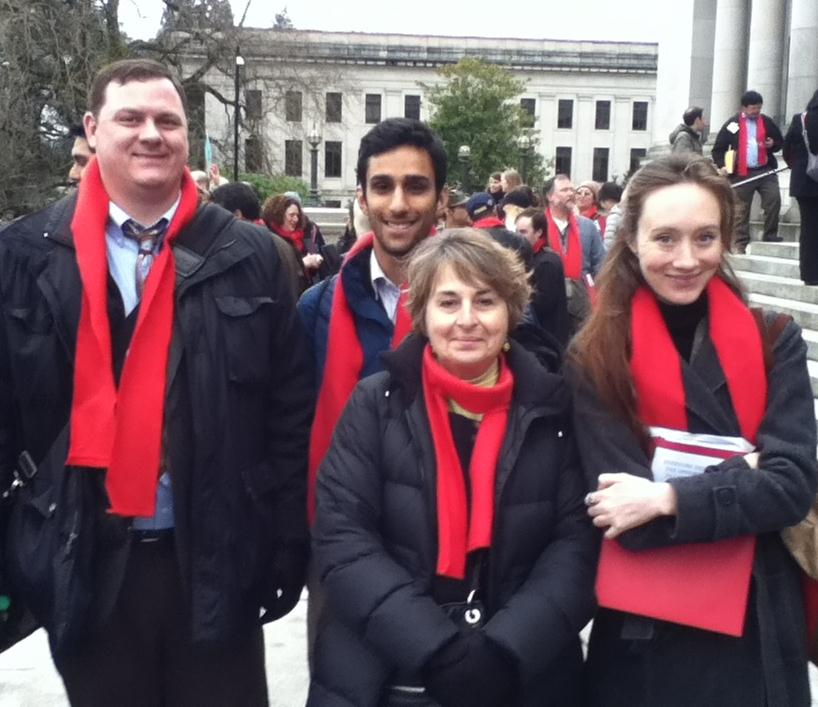Written by Perry Firth, Seattle University’s Project on Family Homelessness, Graduate Student, Community Counseling
Of the more than 650 people who attended Housing & Homelessness Advocacy Day (HHAD) in Olympia on Feb. 11, many were there for the first time. I was one of them, along with two other Seattle University students who work on the Project on Family Homelessness, Judy Pansullo and Ashwin Warrior. As we drove back to Seattle at the end of a long and productive day, we talked about our experiences and what it was like as first-time advocates for change.
The all-day event, hosted by the Washington Low Income Housing Alliance, was an opportunity for the many individuals, groups and agencies affected by and working to end homelessness to advance their legislative priorities.
I posed some questions to our group; here’s what we all had to say.
1) What surprised you?
For Ashwin, a senior economics major, the most surprising thing about HHAD was the diversity of people and the huge outpouring of support for 2013’s legislative priorities.
A surprise occurred for me during the rally on the north steps of the Capitol Building, when two young women talked about their experiences of homelessness. I remember thinking, “They don’t look homeless,” only to realize that in spite of my own knowledge of homelessness, I can still harbor stereotypes of what homelessness looks like. This really caught me off guard and highlighted the ways in which homelessness can be an invisible problem.
2) What moved you?
I was moved by the many advocates who shared their stories of homelessness. Their stories put a face to the statistics, and highlighted the importance of funding the Housing Trust Fund.
Ashwin was impressed by the many older advocates who came out. For him, seeing people who have been doing this work for a long time is a testament to their enduring passion for advocacy. He reflects that the younger advocates really are “standing on the shoulders of giants,” an acknowledgement of the hard work and inroads pioneered by those who have been fighting to end homelessness for years.
3) Did your perceptions of homelessness change?
Attending HHAD for Ashwin did not so much change his perspective as widen it, and make him more curious about ways to collaborate with others engaged in this work. For me, it deepened my perceptions of homelessness. Thanks to HHAD, I am now more able to connect broad legislative priorities, like requesting $175 million for the Housing Trust Fund, to individual stories.
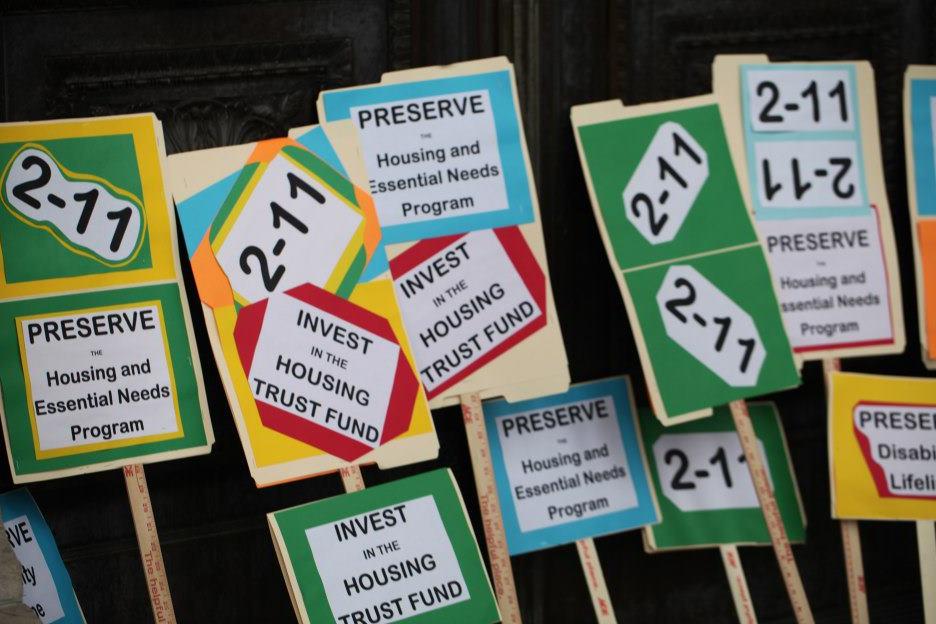
4) What made advocacy become real to you?
Ashwin noted that sometimes politics seem drained of vitality, and that politicians often are more invested in getting themselves re-elected than serving constituents. He was therefore impressed with the legislators, in particular Rep. Frank Chopp (D-43rd), Speaker of the House. He was surprised by Chopp’s passion for the issues surrounding homelessness, and the way in which he worked with the advocates
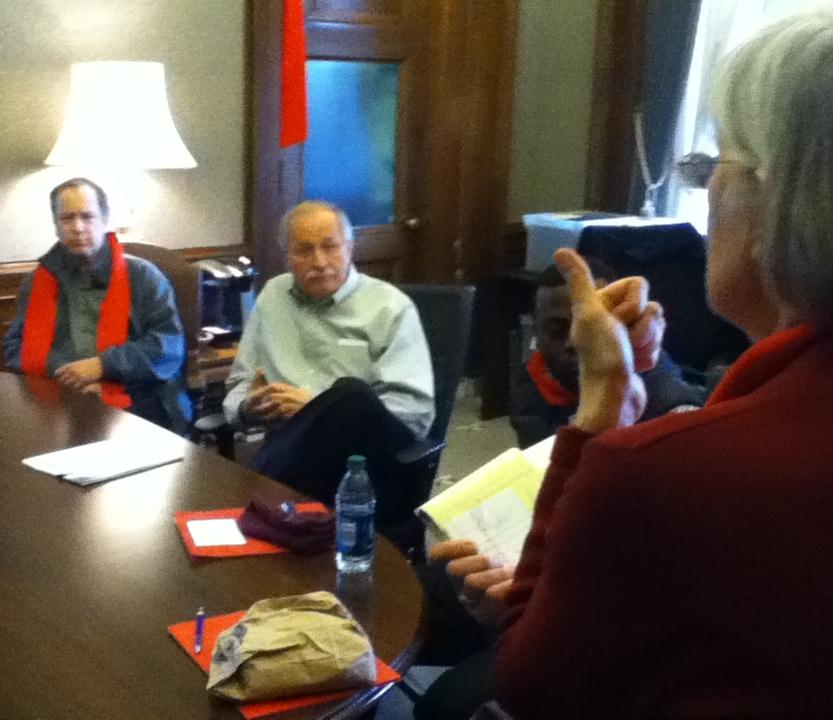
For both Judy and me, talking with the legislators was also an important part of advocacy becoming real. Judy, a graduate student in Nonprofit Leadership, enjoyed seeing the relationships that the advocates have with the legislators, and for me HHAD helped take my abstract understanding of advocacy and ground it in the actual political process.
5) What one person made the greatest impact on you, and what were the most powerful stories you heard?
Nancy Amidei sure made an impression! Ashwin, Judy, and I all said that Nancy’s passion for advocacy impressed us. Ashwin reports that her depth of knowledge and ability to draw people in was both inspiring and comforting.
Ashwin also says that the plea from a mother of two young children to avoid funding cuts to social services impacted the 43rd legislative district meeting through its power and her own courage.
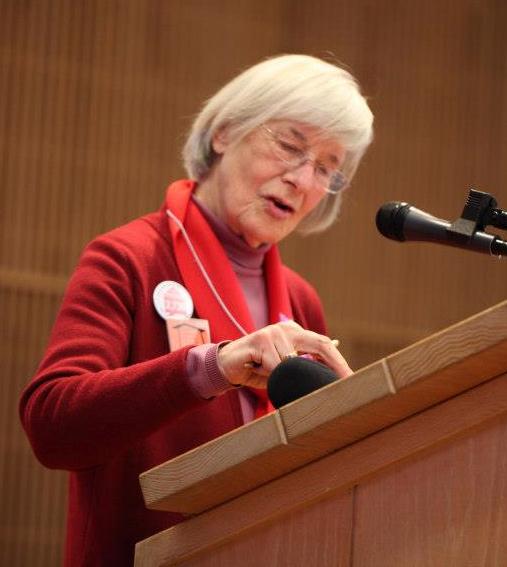
Judy and I also came away from HHAD struck by the stories we heard. In particular, I was moved by the stories shared by Brittany Lang and Quiana Ross during the rally on the steps of the Capitol Building. I was moved and pained by their struggles, which for Quiana, a military veteran, included living in her storage unit while attending college and caring for her ailing mother. Brittany’s story was one of many moves, attempting school, becoming overwhelmed by inadequate or absent housing, and bouts of substance use to cope with her homelessness.
What united their different stories was their determination to succeed in spite of many obstacles, and the immense benefit and comfort they both experience now that they are stably housed. Every single part of their lives has been improved. Their stories and persistence have made a lasting impact on me.
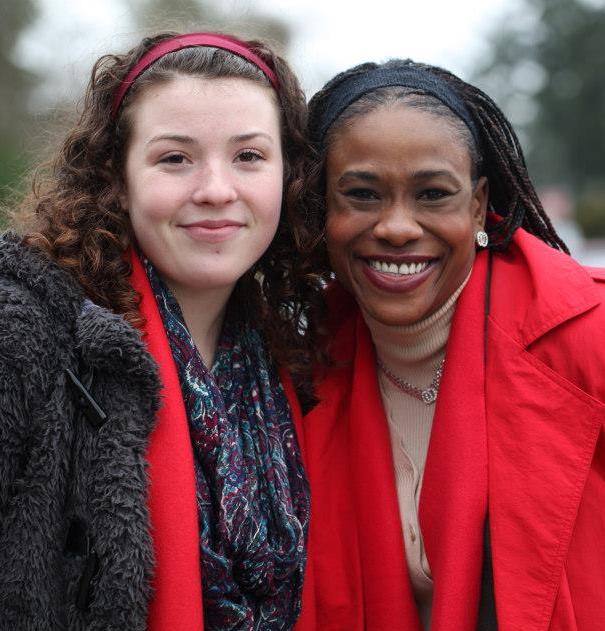
6) What empowered you to continue this work?
I found empowerment and motivation through the stories of homelessness and success I heard throughout the day. I was also empowered by the many advocates pushing for macro-level change. Through seeing how their passion has affected policymaking, I feel that my own passion can also make a difference.
For Judy, motivation to continue comes from seeing that sharing stories of homelessness, and raising awareness of the many reasons for homelessness, really can make a difference. Her time at HHAD has shown her that advocates and stories of homelessness can fight stereotypes and harmful ignorance that is hurting progress.
Ashwin reports that his advocacy efforts continue to be motivated by his work as a coach with Street Soccer Seattle, which advocates to end youth homelessness through soccer. Even if he weren’t involved with Street Soccer Seattle, Ashwin says, the visibility of homelessness would be a constant reminder of all there is to do.
7) What is the most important thing you learned?
For me, one of the most important takeaways is that advocacy pushes policy. I also realized that days like HHAD provide an important venue where people of all ages and creeds interact together and with legislators to achieve a common goal, and that it is only through this kind of collaboration that change occurs.
Moreover, the importance of messaging was really brought home to me. That is, it is helpful if advocates a have clear understanding of what the most important message is so that it can be constantly drilled into the legislators. The message of HHAD 2013? Everyone deserves the opportunity to live in a safe, healthy, affordable home. Most importantly, I learned that legislators work for us — and therefore that we are in fact the ones with the power!
Ashwin and Judy also learned that advocacy is important, and that when people organize, they give themselves a voice. As Judy says, “advocacy works!”
8) What would you tell people who were not there, to get them to advocate all year long and/or come again next year?
I would say that sometimes you may feel that advocacy doesn’t work. It can be hard to connect your own actions and awareness-raising to meaningful policy change. But it is only through advocacy and collaboration that systemic change ever occurs.
Further, everyone counts when it comes to changing something as pervasive as homelessness. Sometimes swaying legislators is all about force in numbers, so even if you feel like your voice doesn’t matter, with many other advocates you present a powerful and unified voice for change.
Ashwin agrees, adding that he would emphasize the opportunity for actual interaction with legislators. HHAD makes this interaction easy.
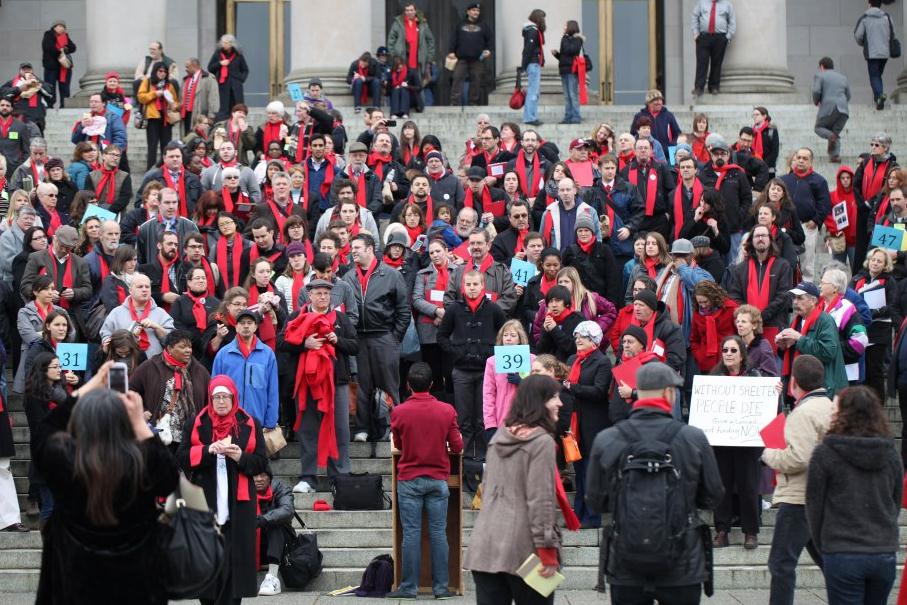
So come out next year to make your voice heard!
